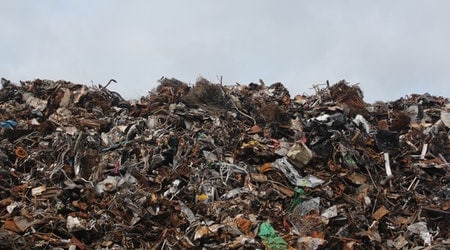Causes and Effects Of Poor Waste Management

Proper waste management is the set of provisions for waste collection, transportation and environmentally sound disposal. Therefore, managing waste properly and in an environmentally sound way is important for health reasons.
Patricia et al 2013 pointed out that waste management is a major challenge urban management faces in Sub-Saharan African countries. Africa is experiencing an increase in population, meaning that the amount of waste produced by households continues to grow. Unfortunately, many countries have sidelined the management of waste.
Causes
Improper disposal of waste: This is when wastes are disposed of indiscriminately in illegal places. Some dispose of their waste by the roadside, on the highway, waterway, lakeside, etc.
Inefficient collection method: Some of the vehicles used in collecting waste in some places are not in good working condition, thereby making some of them dump part of the waste along the road.
Increased Population: Increased population is one of the reasons why the governments of some countries have sidelined proper waste management. And this is one of the causes of poor waste management in such countries.
Inadequate funding by the government: Inadequate funding by the government is one of the reasons why some countries are facing poor waste management. There must be an adequate provision from the collection point and transportation to the point where it is disposed of.
Low level of awareness of the importance of proper waste management and a sanitized environment to the populace in developing countries
Effect
Improper waste management and illegal waste shipments can have negative impacts on both the environment and public health. Negative impacts can be due to different handling and disposal activities resulting in soil, water, and air pollution.
Inadequately disposed of or untreated waste may cause serious health problems for populations surrounding the area of disposal. Leaks from the waste may contaminate soils and water streams and produce air pollution through emissions of, e.g. heavy metals and persistent organic pollutants (POPs), ultimately creating health hazards.
Other effects caused by uncontrolled or mismanaged waste disposal that may affect citizens negatively include impacts at the local level, such as landscape deterioration, local water and air pollution, as well as littering.
(Source: WHO meeting report 2015 “waste and human effect: evidence and needs“)
The health effects of poor waste management on the environment have many studies have investigated include:
- Congenital anomalies
- Respiratory diseases
- Diarrhea
- Neural tube defects
- Abdominal wall defects
- Surgical correction of gastroschisis and exomphalos
- Low birth weight for births to people living within 2 km of the sites, both of hazardous and non-hazardous waste
- Increased risk of cancer
- Malaria appears the most encountered disease in Sub-Saharan Africa as a result of improper waste disposal
